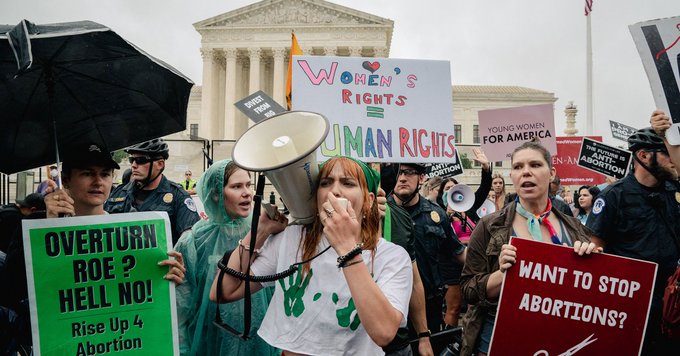US Supreme Court overturned Roe v. Wade, ending 50 years of national reproductive rights
 Image: PA
Image: PA
US Supreme Court overturned Roe v. Wade, ending 50 years of national reproductive rights
Words: Ellen Kenny
More than half of US states are now expected to outlaw or severely restrict abortion as a result of the Supreme Court’s decision.
In a six-to-three vote, the Supreme Court ruled to overturn Roe v. Wade, the landmark court ruling that established the constitutional right to abortion in the USA in 1973.
26 American states already have laws or constitutional amendments which can now be used to ban or severely restrict abortions, including Texas, Arizona, and Utah.
This ruling has been expected for some time. The overturn was easily accomplished by the conservative majority currently in the Supreme Court.
Justice Samuel Alito, who is often considered the most conservative member of the Supreme Court, said, “The Constitution makes no reference to abortion, and no such right is implicitly protected by any constitutional provision.”
“It is time to heed the Constitution and return the issue of abortion to the people’s elected representatives.”

The dissenting judges released a joint statement expressing their alarm and disappointment: “A State can force [women] to bring a pregnancy to term, even at the steepest personal and familial costs.”
“Under those laws, a woman will have to bear her rapist’s child or a young girl her father’s – no matter if doing so will destroy her life.”
Women will likely be able to travel to different states to access abortions. However, this threatens to create a system where wealthier women who can afford to travel are not subject to these laws while poorer women are.
This may only be the start. Justice Clarence Thomas has now recommended that the Supreme Court also “reconsider” the court rulings that legalised contraceptives, same-sex relationships and same-sex marriage.
Elsewhere on District: Remembering Repeal